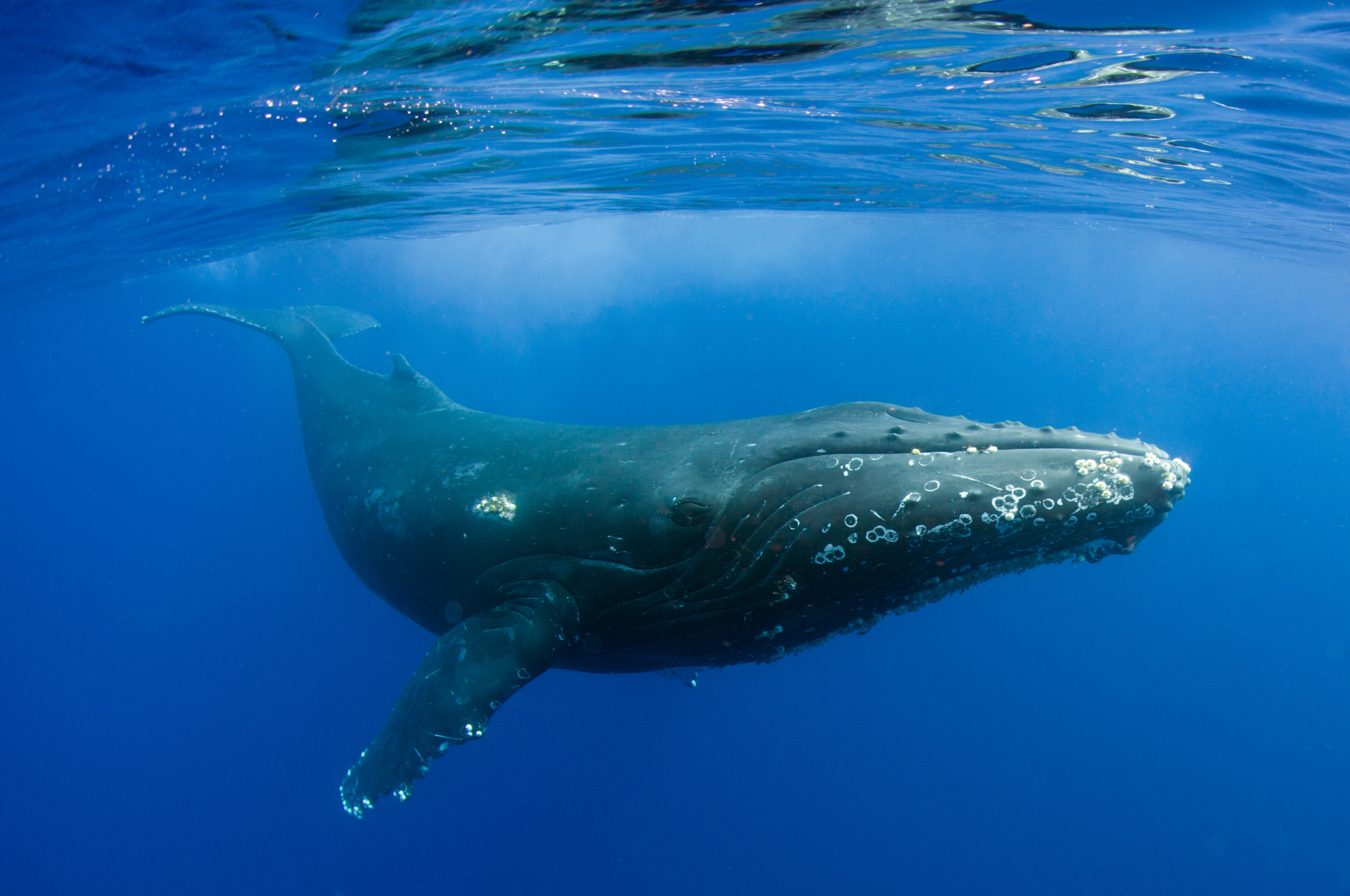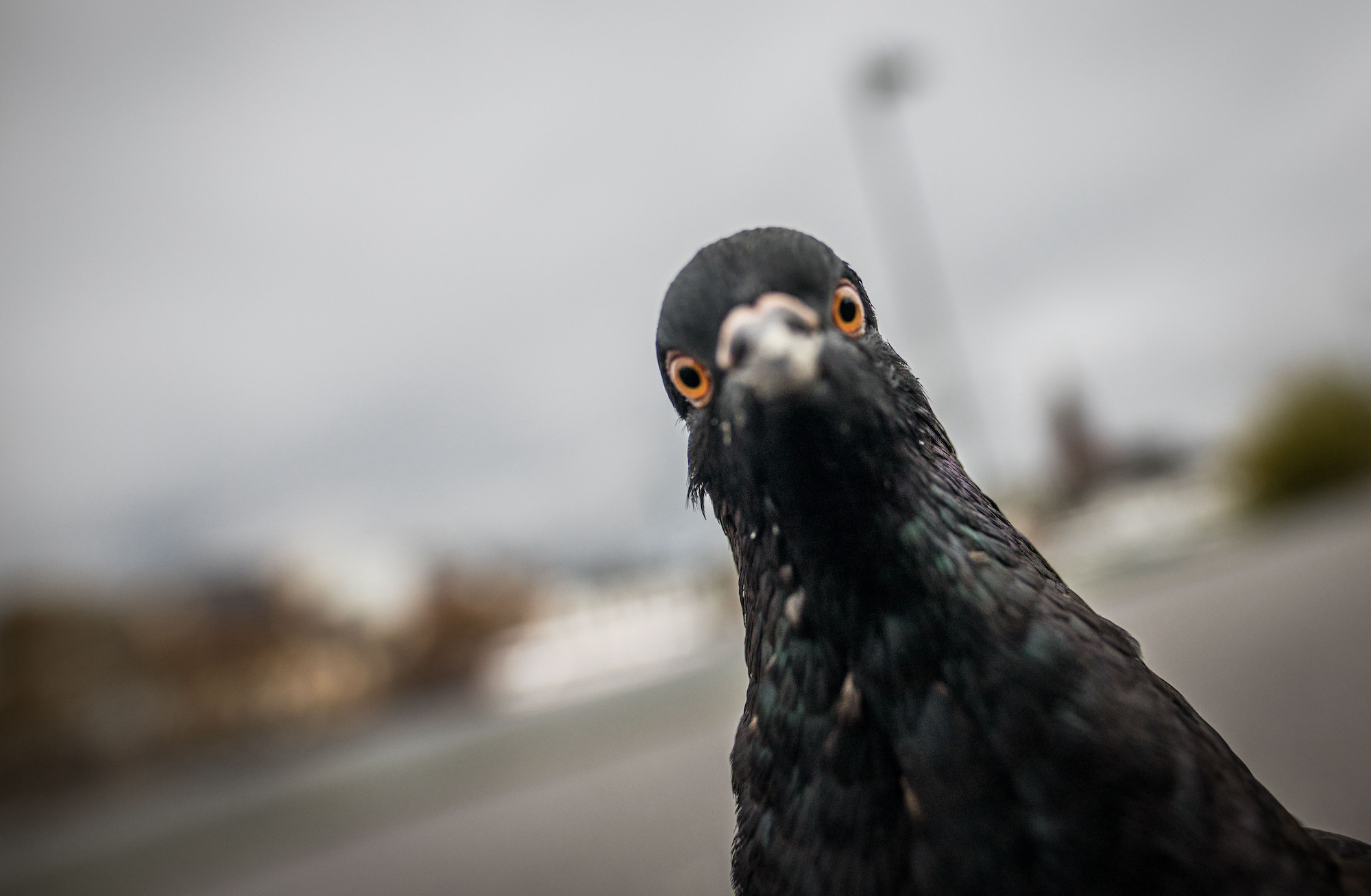Whales Are Singers Too, Billie Eilish
10:33 AM EDT on April 26, 2024

Hello Billie Eilish,
I was excited to see you on the cover of Rolling Stone this week where you appear to be hoisted into the air on a rope in some beigely liminal space. As a Cancer, I am a big fan of your saddest, bleakest songs, and have spent many nights listening to "Everything I Wanted" on loop when I wanted to cry. I found many of the things you said in your Rolling Stone interview, such as asking people to be conscious of their contribution to animal agriculture and referring to masturbation as "jerking it," refreshing. But I admit that I was surprised to read this tidbit:
As a child, Eilish’s biggest fear was water. She has traumatic memories — the swimming instructor whose method was to put her under and wait for her to “figure it out,” or the time she got sucked into the surf of the ocean and a lifeguard had to rescue her. She always found the courage to dive in, but for years, the very idea of swimming made her heart beat faster. And don’t even get her started on whales.
“Oh, my God,” she says. “How can anybody just accept that a whale exists, y’all? Those things are enormous. The noises they make. That shit is terrifying to me. Ew! Terrifying.”
I was taken aback by these sentiments. I wondered, perhaps, if you, like some Spanish yacht-owners, had been wronged by a whale in the past. When I did some more digging, I found that in 2019, you shared similar thoughts with Billboard:
"I'm afraid of the ocean and like whales and shit. Whales are fucking creepy as hell. Whales are so creepy. You cannot tell me that that sound the whales make—oooooh—you can't tell me that's not creepy as hell."
I absolutely understand where you are coming from. I love the ocean almost more than anything and I, too, am terrified of it. And I am so sorry to hear about your oceanic trauma—that swim instructor sounds atrocious, and being sucked into the surf is extremely frightening. The ocean is a force more powerful than any of us, able to carry our bodies gently toward shore or obliterate us entirely, a force that we would do well to respect. I can tell that this respect underlies your fear.
But, Billie Eilish, I would like to gently push back on your criticisms of whales. In particular, I would ask why you, as a musician and songwriter, call their vocalizations "sounds" and "noises" instead of songs. I do not know what you know of whales, but they are almost as famous for singing songs as they are for being big. We have known that whales vocalize—making, as you say, sounds and noises—for centuries. But in 1967, the marine biologist Roger Payne discovered humpback whales' sounds organized into repeating patterns and were thus comparable to music. Payne's discovery helped scientists discover that all whale species sing with complexity and rhythm. The whales sang songs that evolved over time and morphed across geography. Each year, the whales chop and remix their songs, with unique melodies in each population. And the whales can pass these songs across the globe, with whales near Australia passing songs to whales near French Polynesia passing songs to whales in Ecuador. This must sound familiar to any pop star who has gone on a world tour.
I'll admit that whale songs—"oooooh," as you imitate them—do not sound like our human songs. There are no beat drops, featured artists, or the dreaded spoken-word voicemail interlude from an artist's girlfriend or grandma. Perhaps this is for the best. And sure, you might find it cringe that whales only sing a cappella. But what sorts of instruments can one play with flippers? Whale songs might not sound like symphonies to our ears, but we, of course, are not the intended recipients of their songs. To a whale, another whale's song might indeed sound like a symphony, an aria, or even the whistle notes in a Mariah Carey performance. Who can forget the time when Mariah Carey sang a whistle note to a dolphin and the dolphin flipped out! Perhaps she is the only one among us who can sing to marine mammals on their level.
What would a whale think of "Bad Guy"? What would a whale think of "When the Party's Over?" We cannot know until we play your discography to a patient pod, but I would hope the whales would listen with open minds and hearts to your "noises." As a writer, there are many books that I do not like, books that I hate, and even books that I believe should never have been written. But I would never stoop to call the collected literature of humankind "scribblings" or "scrawlings" or even "the careless and inconsequential doodlings of a madman." I would never do that.
In fact, the humpback whales Roger Payne encountered released an album! 1970's Songs of the Humpback Whale, had five tracks, totaled 34 minutes, and sold more than 125,000 copies, which was quite impressive for a nature album at the time. The album and its cetacean vocalists were snubbed at that year's Grammys, which seems increasingly like the mark of a superior artist. Payne's album helped turn the public's attention toward commercial whaling, which was devastating many species and pushed some populations toward extinction. An excerpt from one whale's song was even chosen for the Voyager Gold Record, where it now hurtles through interstellar space. In 1978, Kate Bush sampled a whale song in her debut album The Kick Inside, an honor for any musician!
Perhaps what you most find creepy about whales is not their size, or even their noise, but the unknowable wisdom they hold behind their eyes, both like and unlike our own. It is only human to fear the great unknown. Your debut album, When We All Fall Asleep, Where Do We Go?, which you say was inspired by lucid dreaming and nightmares, debuted at No. 1 on the charts. You may be interested to learn that when whales fall asleep, they stay suspended in one place underwater. Sperm whales will take group naps in the open ocean, where all the whales point, nose-up, to the surface. They can only sleep for about 20 minutes before they need to breathe, at which point they'll rise to gulp in air and descend to fall asleep again.
We are all mammals here, after all, so it's possible that whales understand you better than you think. In your Rolling Stone interview, you said you submerged yourself at the bottom of a pool on a cold February afternoon to shoot the cover of your new album. After six hours diving in and out of the water, you spent 20 minutes blowing your nose in the trailer. “It was just white snot blowing out, as if my insides were made of white goo,” you told the writer. Is it the spouting whale you fear, Billie Eilish, or yourself? I invite you to, like Beyoncé, open your eyes, and your ears, to the grandeur, the spectacle, and the mystical wonder of whales. Let your heart, and your music, be changed by whales and their songs. Let the whale you fear become a muse you love! Waaaooooaoooh! Arrrooooooeeeeeao! Whuuuuummmpwhuuuumpwhuuump!
If you liked this blog, please share it! Your referrals help Defector reach new readers, and those new readers always get a few free blogs before encountering our paywall.
Stay in touch
Sign up for our free newsletter





